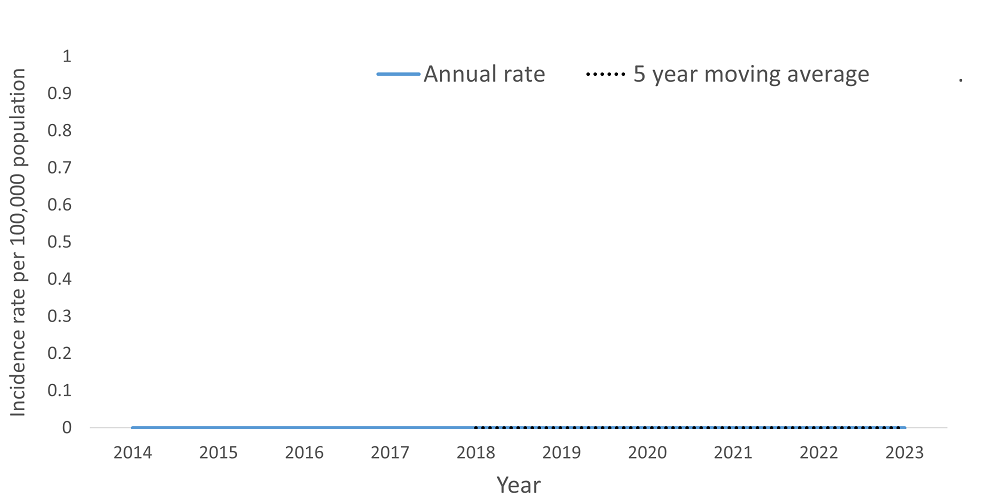Echinococcus multilocularis is a small tapeworm that is normally found in canids (coyotes, foxes, and dogs), and rodents. It is primarily spread to humans through accidental consumption of contaminated stool matter of infected canids.
Important preventive measures include good hygiene practices (especially handwashing) when handling wild or domestic canid stool or after exposure to areas where wild or domestic canids may have pooped. Speak to your veterinarian about deworming options for your dogs that may be exposed to infected rodents.
Local Information
2024 Statistics
Incidence rate is the number of new cases of disease divided by the number of persons at risk for the disease during a particular time period.
Cases:
0*
*Includes confirmed cases in 2024.
Incidence rate per 100,000 in 2024: 0
Incidence rate per 100,000 of Echinococcus Multilocularis Infection by year

Data Sources |
|
More Information about Echinococcus Multilocularis Infection |
Reporting |
|
Report to the Health Unit by next business day by phone at 705-474-1400 or toll free at 1-800-563-2808, ext. 5229 if echinococcus multilocularis infection is suspected or confirmed as per Ontario Regulation 135/18 and amendments under the Health Protection and Promotion Act, R.S.O., c.H.7. |
Should one go to childcare, school, or work if they have echinococcus multilocularis infection? |
| No exclusion necessary as it is not spread from person-to-person. |
Healthcare Provider Information |
|
Public Health Ontario: Echinococcus - Cyst Public Health Ontario: Echinococcus - Serology Public Health Ontario: Echinococcus multilocularis Public Health Ontario - At a Glance: Echinococcus multilocularis Infectious Disease Protocol, Appendix 1: Echinococcus multilocularis infection |
Contact our Communicable Disease Control (CDC) program at 705-474-1400 or toll free at 1-800-563-2808, ext. 5229, or by email to cdc@healthunit.ca for more information.
Last updated: February 2025, by CDC


